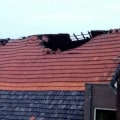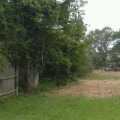There is a right and wrong way to exterminate raccoons while doing forestry mulching in Houston. The right way will save you time, money, and hassle. The wrong way can lead to raccoon infestation and health hazards. When attempting to eliminate raccoons, it is important to understand that trapping and removal is the most effective method. Raccoon traps should be set up where they are known to wander.
What Is Forestry Mulching
Forestry mulching is a land management technique that clears brush and other debris from an area. This type of mulching uses a specialized machine, known as a forestry mulcher, to grind up the material and turn it into helpful biomass that can be used for fuel or soil nutrients. Mulching with this machine helps create open spaces in forested areas while promoting healthy forest ecosystems by allowing sunlight to reach the understory and enhancing habitat for birds and animals.
The process works by using a sturdy steel head attached to the front of the machine that houses several rotating blades. These blades are designed to easily cut through woody material, such as small trees, shrubs, and vines. As the blades spin, they break down organic materials into small chips spread out over the cleared area. The chips help reduce soil erosion and provide additional organic matter for plants and trees when left behind.
How To Identify and Avoid Raccoon Hotspots While Forestry Mulching
As effective as it may be, many potential issues can arise when performing forestry mulching, such as dealing with wildlife like raccoons. Raccoons can wreak havoc on forestry mulching projects if they are not dealt with properly. Therefore, it is important to understand how to identify and avoid raccoon hotspots while doing forestry mulching in Houston.
The first step in avoiding raccoon hotspots is to look for signs of their presence. Raccoons are mostly active at night, so it is important to pay extra attention during the evening and early morning hours when they are most likely to be out and about. If you spot any tracks or scat left behind by them, this could indicate they live nearby. Secondly, raccoons tend to make nests near water and food sources, such as gardens or piles of wood recently cut down. Paying attention to these types of places can help steer clear of possible trouble spots where raccoons may be present.
Finally, avoid potential raccoon hotspots by being aware of your surroundings during your forestry mulching operations. Ensure all workers are alert to the possibility of a raccoon onsite and take necessary precautions such as wearing protective gear, using noise deterrents like radios or whistles, and monitoring for signs of animal activity at all times. It is also wise to set up traps around the perimeter of your work area if you suspect a raccoon may be present. This will allow you to capture them quickly before any further damage is done or harm comes to any workers or animals in the vicinity.
What Kind Of Damage Can Raccoons Cause During Forestry Mulching
Raccoons can cause significant damage when found in or around forestry mulching operations. Because they are omnivorous, they will feed on various items found in the area, including insects, fruits, nuts, and roots. They will also use small gaps or tunnels made by workers to access mulch piles. Furthermore, raccoons often dig up young trees or eat new seedlings if they find them. When this happens, it can lead to the tree's death and a decrease in timber production.
In addition to eating plants and seeds, raccoons will also scavenge for food among any tools or equipment used in forestry mulching operations. This can cause considerable damage as their claws and teeth are sharp enough to rip apart protective coverings or tear them into plastic containers looking for food sources. Furthermore, these animals are known for defecating on lumber piles and even marking their territory with feces which can lead to contamination of the mulch pile and any nearby residents or vehicles.
Besides causing physical damage through their scavenging habits, raccoons can also act as carriers of various diseases that may harm humans and other wildlife, such as rabies, roundworms, leptospirosis, salmonellosis, and toxoplasmosis. In addition to the risk posed by disease transmission through direct contact with raccoons, their droppings may also contain parasites capable of infecting those who come into contact with contaminated areas where the animals have been present.
When To Hire A Raccoon Exterminator Specialist
Several signs indicate that it is time to call a professional exterminator:
- If you have noticed an increase in the number of raccoons on your property, this may be a sign that your home has become a food source for the animals or that they are seeking shelter from bad weather or predators in your yard.
- If you find raccoon droppings on your property, especially near your home or underneath structures like decks and porches, this indicates a nest where they could be reproducing and could become more difficult to deal with over time.
- If you notice any kind of damage caused by raccoons, such as torn shingles, chewed wood siding, or damaged insulation, this likely means that these animals have been using their sharp claws and teeth to gain access into your home or other structures on your property.
- Additionally, if you have heard loud scratching noises coming from inside walls or ceilings, this could mean that the animals have made their way inside and are now nesting deep within the confines of your house.
When hiring a raccoon exterminator specializing in wildlife management in Houston, you should look for someone licensed by the Texas Department of Agriculture (TDA). This ensures that all techniques used by the exterminator comply with state regulations regarding the humane treatment of animals, no matter how troublesome they might be.
The Cost Of Hiring A Raccoon Exterminator Specialist
Generally, The cost of hiring a raccoon exterminator specialist can vary significantly depending on the severity of the infestation, the number of raccoons, and what services the specialist offers. The average cost for an extermination job ranges from $200 to $400. This price will include the cost of traps, bait and poisons, labor fees, and other miscellaneous charges.
In some cases, a raccoon exterminator may charge an additional fee for the removal and disposal of the dead animals after they have been removed from your property. This will depend on whether or not they are licensed to do so in your local area. In Houston, Texas, you will need to check with your local authorities to ensure the exterminator is legally allowed to remove dead animals from your property.
Contact A Raccoon Exterminator Specialist In Houston
No matter what method you choose to get rid of raccoons while doing forestry mulching in Houston, you must take all necessary precautions to keep everyone safe throughout the process, including yourself and those around you who may come into contact with wildlife during removal efforts. Working with AAAC Wildlife Removal, a raccoon exterminator specialist with experience in dealing with all types of wildlife, can help you successfully remove harmful and destructive raccoons from your property.
If you are serious about permanently removing raccoons while doing forestry mulching in Houston, AAAC Wildlife Removal can provide you with peace of mind knowing that you have taken the correct steps to ensure your safety and the safety of others. With their help, you can keep raccoons from invading your property and disturbing your forestry mulching efforts. Contact AAAC Wildlife Removal today for more information about how they can help with raccoon removal in Houston.



